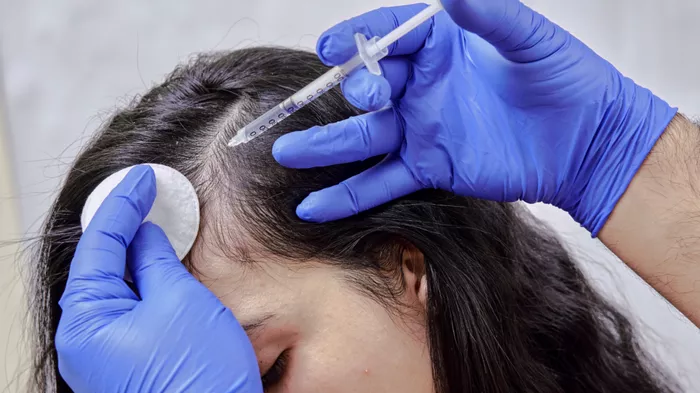Hair loss is a common issue that affects millions of people worldwide, leading many to seek solutions such as hair transplants. For Muslims, however, the decision to undergo such a procedure often comes with religious considerations. Islam provides clear guidance on matters of health, beauty, and medical interventions, and it is essential to understand whether hair transplants align with Islamic principles. This article explores the permissibility of hair transplants in Islam, examining religious texts, scholarly opinions, and ethical considerations.
Understanding Hair Transplants
What Is a Hair Transplant?
A hair transplant is a surgical procedure that involves moving hair follicles from one part of the body (the donor site) to a balding or thinning area (the recipient site). It is commonly used to treat male pattern baldness, female pattern hair loss, and other conditions that result in hair thinning or loss. The procedure has gained popularity due to its effectiveness in restoring a natural-looking hairline and improving self-confidence.
Types of Hair Transplants
There are two primary methods of hair transplantation:
Follicular Unit Transplantation (FUT): This technique involves removing a strip of skin from the donor area, dissecting it into individual follicular units, and transplanting them to the recipient area.
Follicular Unit Extraction (FUE): This method involves extracting individual hair follicles directly from the donor area and implanting them into the recipient site.
Both methods are widely used and have their own advantages and disadvantages.
Islamic Perspectives on Medical Interventions
The Importance of Health in Islam
Islam places a high value on health and well-being. The Quran and Hadith emphasize the importance of maintaining good health and seeking treatment for illnesses. The Prophet Muhammad (peace be upon him) said, “There is no disease that Allah has created, except that He also has created its remedy” (Sahih al-Bukhari). This encourages Muslims to seek medical solutions for health-related issues, including hair loss.
Permissibility of Cosmetic Procedures
Cosmetic procedures are generally permissible in Islam as long as they serve a legitimate purpose and do not involve haram (forbidden) elements. For example, procedures that restore functionality or improve quality of life are often considered acceptable. However, unnecessary alterations to the body, such as those done purely for vanity, may be discouraged.
Is Hair Transplant Allowed in Islam?
Scholarly Opinions on Hair Transplants
Islamic scholars have debated the permissibility of hair transplants, and the majority view is that it is allowed under certain conditions. The key considerations include:
Intentions: The procedure should be done for a valid reason, such as restoring self-confidence or addressing a medical condition, rather than for vanity or imitating others.
Method: The method used should not involve haram practices, such as the use of forbidden substances or excessive alteration of Allah’s creation.
Harm: The procedure should not cause significant harm or risk to the individual.
Evidence from Islamic Texts
There is no direct mention of hair transplants in the Quran or Hadith, as the procedure is a modern medical advancement. However, scholars often refer to general Islamic principles to determine its permissibility. For example:
The Quran states, “And do not throw yourselves into destruction” (Quran 2:195), which encourages Muslims to avoid harm. Hair transplants are generally safe and do not pose significant risks, making them permissible.
The Hadith encourages seeking treatment for illnesses, which can be extended to addressing hair loss if it causes psychological distress or affects one’s quality of life.
Conditions for Permissibility
Based on scholarly opinions, hair transplants are allowed in Islam if the following conditions are met:
Medical Necessity: The procedure should address a genuine medical or psychological need, such as treating hair loss caused by illness or trauma.
No Haram Elements: The procedure should not involve the use of haram substances, such as alcohol-based solutions or products derived from forbidden sources.
Moderation: The individual should avoid excessive or unnecessary alterations to their appearance, as Islam encourages moderation in all matters.
Ethical Considerations
Balancing Beauty and Faith
Islam encourages Muslims to take care of their appearance and maintain cleanliness. The Prophet Muhammad (peace be upon him) said, “Allah is beautiful and loves beauty” (Sahih Muslim). However, this should not lead to vanity or dissatisfaction with one’s natural appearance. Hair transplants should be approached with the intention of restoring confidence and addressing a legitimate need, rather than chasing unrealistic beauty standards.
Avoiding Deception
Another ethical consideration is the potential for deception. For example, using hair transplants to misrepresent one’s age or appearance in a way that could mislead others may be discouraged. Islam emphasizes honesty and transparency in all aspects of life.
Alternatives to Hair Transplants
For Muslims who are unsure about the permissibility of hair transplants or prefer non-surgical options, there are several alternatives to consider:
Natural Remedies: Some individuals opt for natural treatments, such as herbal oils or dietary changes, to promote hair growth.
Medications: FDA-approved medications like minoxidil and finasteride can help slow down hair loss and stimulate growth.
Lifestyle Changes: Maintaining a healthy lifestyle, managing stress, and avoiding harmful habits can improve overall hair health.
Consulting Islamic Scholars
Given the nuanced nature of this issue, it is advisable for Muslims to consult knowledgeable Islamic scholars or imams before undergoing a hair transplant. Scholars can provide personalized guidance based on the individual’s circumstances and the specific details of the procedure.
Conclusion
In conclusion, hair transplants are generally considered permissible in Islam if they are done for a legitimate reason, involve halal methods, and do not cause harm. The procedure aligns with Islamic principles of seeking treatment and maintaining good health, as long as it is approached with the right intentions and moderation.
Ultimately, the decision to undergo a hair transplant should be made after careful consideration of religious, ethical, and medical factors. By consulting Islamic scholars and adhering to the guidelines of the faith, Muslims can make informed choices that align with their beliefs and values. Hair transplants, when done responsibly, can be a means of restoring confidence and improving quality of life while remaining within the boundaries of Islamic teachings.
You Might Be Interested In:

